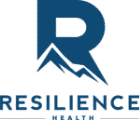To someone who has never dealt with addiction, relapse appears to be a situation that occurs suddenly and unexpectedly. Understanding the nature of relapse and your triggers helps you to define a relapse plan. By planning for a relapse before it happens, you are better able to manage your choices in the moment.
Being tempted to return to a life of drug use is part of recovery. Relapse prevention strategies help you recognize times when you may be at risk.
The Nature of Relapse
Relapsing is not a decision that someone makes at the moment. Often, the individual struggles with certain issues for weeks or months before returning to opioid use.
Relapse typically unfolds in three stages:
- Emotional
- Mental
- Physical
It is vital for the long-term success of a patient to have a strong support person or group. Typically friends and family notice a problem only when a patient is displaying the physical symptoms of addiction.
Each stage of the relapse process has a prevention plan so that the recovering addict can use the tools as needed.
Stage 1: Emotional Relapse
During the emotional relapse stage, a person is not considering drug or use, but certain behaviors and emotions are setting the stage for relapse. Recovering addicts who are in this stage may:
- Experience anger, anxiety and sudden changes in mood
- Demonstrate an intolerance towards others, isolate themselves from others or become defensive
- Stop healthy behaviors, such as attending meetings and asking for help
- Have trouble sleeping or eating
The emotional stage of relapse is the easiest to manage. If you notice signs of emotional relapse, simply tell us during your weekly visit. We will ask questions every week that will help us identify this state even if you don't notice it.
Stage 2: Mental Relapse
A person who is experiencing a mental relapse has internal arguments between the person who wants to use opioids as a coping mechanism and the person who wants to use new life tools and avoid drugs use. Initially, the person is not dwelling on using, but as time goes by, thoughts are more directed toward drug use. Signs of a mental relapse are:
- Being untruthful and lying
- Fantasizing about using opioids
- Thinking about past times when you were using and making those times seem glamorous
- Reconnecting with old friends that used with you
- Planning a relapse around someone else’s schedule, such as considering when your spouse will not be home
At this point, the pull of addiction is quite strong. If you are experiencing a mental relapse, we invite you to tell us during your weekly visit. With our exerience we can often help you recognize when this is happening. You should also recognize the tricks that are used by your “addiction” mind, such as convincing you that you will only use once or that no one will know that you used again. Other steps to take are:
- Contacting a friend, sponsor or fellow recovering addict. Let them know that you are considering using again.
- Find some way to spend your time on healthier activities, such as going to a meeting or for a walk.
- Wait for 30 minutes, as most urges to use again only last 15 to 30 minutes.
- Focus on today. Do not overwhelm yourself with thinking about tomorrow, next month or next year. Stay grounded in the moment.
Stage 3: Physical Relapse
- Finally, physical relapse is when an individual starts using again. Most physical relapses are relapses of opportunity. They occur when the person has a window in which they will not get caught. Part of relapse prevention involves rehearsing these situtiaons and developing healthy exit strategies.
When people don't understand relapse prevention, they think it involves saying no just before they are about to use. However, that is the final and most difficult stage to stop which is why people relapse.
When individuals remain in mental relapse long enough without the necessary coping skills, clinical experience has shown they are more likely to turn to druges to escape their turmoil.
Opiates Effect in Your Brain
During relapse, severe changes can occur within the brain, particularly in areas associated with reward.
To break it down further, here's what happens: your brain reward system involves a release of a neurotransmitter called dopamine, which becomes activated when a person engages in any type of addictive behavior or substance use and abuse. This activation can create feelings of pleasure and reinforce the addictive behavior. Exposure to specific cues associated with addictive behavior or substance use, such as seeing drug paraphernalia or being in environments where substance use happened previously, can also trigger intense cravings. It's these cravings that are driven by the brain's memory of the plausible effects of the addictive behavior or substance.
During a relapse, the prefrontal cortex, which is responsible for proper decision-making and impulse control, may become inhibited or impaired. This often leads to impulsive and risky decision-making as well as a diminished ability to weigh the consequences of using substances again or engaging in addictive behavior.
Risks of Relapse
Relapse refers to the return or worsening of symptoms or conditions that occur after improvement or remission. In some instances, relapse can occur in different areas of health and wellness, all of which have unique risks.
Below are a few of the most common examples of the risks associated with relapse:
- Physical health risks - When someone relapses, the subsequent risks can include organ failure, overdose, poisoning, and even infectious diseases caused by needle sharing and other risky behaviors.
- Mental health risks - Relapse can also exacerbate other mental health conditions, such as anxiety, bipolar, and other underlying mental health conditions.
- Legal and social risks - Relapsing may also result in legal problems, strained relationships, financial problems, and even a loss of employment and counseling, all due to substance-related behaviors.
The risk of relapse will depend on the specific condition of the behavior involved, its overall impact on physical and mental health in addition to individual circumstances, and whether or not they have a support system. Being able to recognize the warning signs and take proactive steps toward intervention can help reduce the risk of relapse while promoting sustained recovery.
We work with all our clients to develop relapse prevention plans. If you are experiencing any one of the stages of relapse, please contact us to receive the help you need. We are your strong, kind, non-judgmental allies and we will help you.
Myths and Misconceptions
One of the biggest myths about relapse is that if you relapse, you fail completely.
While recovering addicts should do everything in their power to avoid a relapse, it’s important to understand that relapse is considered a normal and often expected part of recovery.
What matters most is how you respond to your relapse and the things you do to prevent yourself from abusing opiates in the future.
If you do relapse, it can be seen as an opportunity to learn more about yourself. Recognizing the triggers and life stressors that led to your relapse will allow you to avoid another relapse in the future.
Another misconception is that you can never prevent relapse. While many people do relapse at some point, it is possible to gain the skills you need to avoid it. Even if you relapse multiple times on your journey to sobriety, you have the power to change your life and reach your fullest potential. Having the right skills, knowledge, and a support system increases your chances of success.
Skills Needed For Relapse Prevention
There are several essential skills that help with relapse prevention.
- Recognizing and labeling emotions
- Stress management
- Trigger management
- Anxiety coping skills
Particularly developing the ability to identify and ultimately address any underlying issues or triggers that could lead to relapse and finding viable solutions to overcome challenges.
Creating a Relapse Prevention Plan
"If you fail to plan, you plan to fail"
~ Benjamin Franklin
First, it helps the addict to identify and address potential triggers for drug use, such as stress at work and broken relationships.
Second, relapse prevention empowers the addict by pre-defining strategies for addressing each trigger.
Third, addicts who are close to relapsing may not be in an emotional space where they can evaluate their resources. By having this information available in the relapse prevention plan, the person can simply refer to the plan.
Fourth, relapse is not a pleasant subject for many recovering addicts. The thought of relapsing often brings about fears and doubts.
A relapse prevention plan helps alleviate these fears and doubts. We will be with you for the long haul. You will have a telehealth visit with our professionals every week or even more often as needed for the entire two years. We will help you identify relapse before it ever interferes with your job and family.


